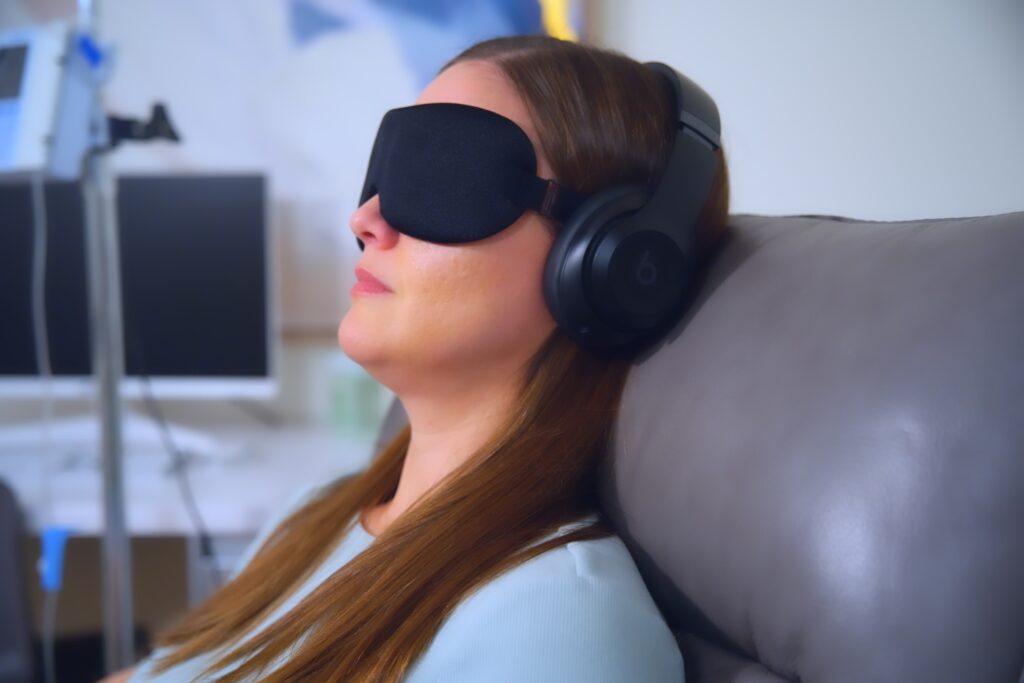Alzheimer’s disease, the most common form of dementia, affects millions worldwide, accounting for 60-80% of dementia cases. Researchers believe that it’s caused by the abnormal build-up of proteins in and around brain cells, a process which begins many years before symptoms appear and leads to a gradual decline in cognitive functions like memory, reasoning, and decision-making. Alzheimer’s disease is a progressive condition, causing mild symptoms at first, often with minor memory lapse, that then become more severe over time, impacting a person’s ability to function. As brain cells become increasingly damaged, there is also a reduction in chemical messengers, known as neurotransmitters, which are essential for communication between brain cells.
In the United States, around 6.5 million people aged 65 and older are living with Alzheimer’s, with most over the age of 75. While there is no cure, dementia medication specifically for Alzheimer’s is available that can slow the progression of symptoms and improve the quality of life for both patients and their caregivers.
Current Treatment Landscape for Alzheimer’s Disease
One standard drug for Alzheimer’s is cholinesterase inhibitors, which control levels of acetylcholine, a substance in the brain that helps nerve cells communicate with each other and that is affected in Alzheimer’s disease. Another type of Alzheimer’s medication called memantine works by blocking the effects of an excessive amount of glutamate in the brain. Glutamate is a crucial neurotransmitter that brain cells damaged by Alzheimer’s disease produce excessive amounts of, leading to further disruption in cell communication and exacerbating cognitive decline. Existing conventional treatments ease the symptoms or slow down the progression of Alzheimer’s, but don’t actually tackle the disease itself.
Introducing Anti-Amyloid Drugs: A New Approach to Alzheimer’s Treatment
The newest kind of medication for Alzheimer’s disease is a kind of drug called an anti-amyloid. It works directly on what is believed to cause the disease, instead of just the symptoms. Anti-amyloids target the protein fragments that build up in the brain and form plaques, a defining feature of Alzheimer’s.
One of these new Alzheimer’s drugs goes by the brand name Leqembi. It’s an intravenous (IV) infusion therapy that was fully approved by the FDA in July 2023. Though Leqembi is not an actual cure for Alzheimer’s or other dementias, its ability to alter the course of the disease does make it a groundbreaking therapy. Clinical trials have demonstrated that Leqembi is effective in reducing amyloid beta plaques in adults diagnosed with mild Alzheimer’s disease. Additionally, a phase three clinical trial with 1,795 patients indicated that Leqembi may help decelerate the progression of mental decline, offering patients a few additional months of cognitive function stability. This innovative approach offers new hope for those in the early stages of Alzheimer’s disease.
Keta Medical Center offers Leqembi infusions in a safe, comfortable and relaxing setting, supervised by our on-site physicians. Learn more.
Another so-called anti-amyloid drug for early Alzheimer’s treatment named Kisunla entered the scene shortly after Leqembi, also receiving FDA approval. The effectiveness of Kisunla was tested in a study with 1,736 patients at an average age of 73 years who were in the early stages of the disease. They were randomly divided into two groups, with one receiving Kisunla and the other a placebo. Patients who took Kisunla showed a significant reduction in clinical decline of their condition compared to the placebo group. The improvement was measured using several scales that assess memory, thinking, and daily activities.
Potential Side Effects of Anti-Amyloid Therapy
While Leqembi and Kisunla both offer promising treatment options for Alzheimer’s disease, they are not without potential side effects. One of the more serious ones is Amyloid Related Imaging Abnormalities, or ARIA. ARIA often appears as temporary brain swelling that typically resolves over time. Some people may also have small spots of bleeding in or on the brain’s surface, and rarely, larger areas of bleeding can happen. Most people with brain swelling don’t have symptoms, but some might experience headaches, nausea, confusion, difficulty walking, dizziness, seizures, and vision changes. Some individuals have a certain genetic risk factor that may increase their risk for ARIA. Across the two drugs Leqembi and Kisunla, clinical trials have shown that between three and six percent of people who took them got symptomatic ARIA.
Some patients receiving Leqembi may also experience reactions related to the infusion. Typically, these symptoms are mild and go away on their own. They include:
- Fever and flu-like symptoms
- Nausea or vomiting
- Dizziness or lightheadedness
- Fluctuations in heart rate and blood pressure
- Shortness of breath or difficulty breathing
In the Leqembi clinical trial, approximately one in four participants experienced an infusion-related reaction, with 28 percent of these cases classified as moderate or severe. In contrast, a similar trial for Kisunla reported infusion reactions in nine percent of patients, but these were more concerning, with 43 percent of reactions being moderate or severe.
Testing Requirements for Leqembi
Patients with a so-called ApoE ε4 gene who take Leqembi have a higher chance of developing ARIA, which can be serious and severe, compared to those who don’t carry this gene. Therefore, it’s generally recommended to test for ApoE ε4 before starting Leqembi to better weigh the risks. Other tests that may be necessary, such as:
Amyloid PET Scans or CSF Analysis: These confirm the presence of the amyloid-beta plaques in the brain which are targeted by the drug.
Baseline MRI Scans: MRI scans assess overall brain health before starting Leqembi treatment and are vital in uncovering any pre-existing conditions or abnormalities that could increase the risk of complications.
Why Choose Keta Medical for Leqembi Treatment?
At Keta Medical Center, we are committed to providing cutting-edge therapies and comprehensive support to help you navigate new treatment options. We offer innovative solutions for those who have not found relief through traditional methods, because we believe everyone deserves access to the latest advancements in mental health care. Our priority is to ensure that these treatments are administered in a safe, informed, and responsible manner, empowering you to make the best decisions for your well-being. We also offer convenient scheduling with evening and weekend availability for infusion therapy.
We offer inclusive spaces to ensure all patients feel comfortable and receive sensitive, affirming care. Our experienced, compassionate medical professionals bring over 15 years of experience in emergency medicine and a deep commitment to patient safety and personalized care. Their expertise and dedication to innovative treatments make Keta Medical a trusted choice for your health needs.
We’re happy to answer any questions you have, or help you make your first appointment!
Contact us at [email protected]






